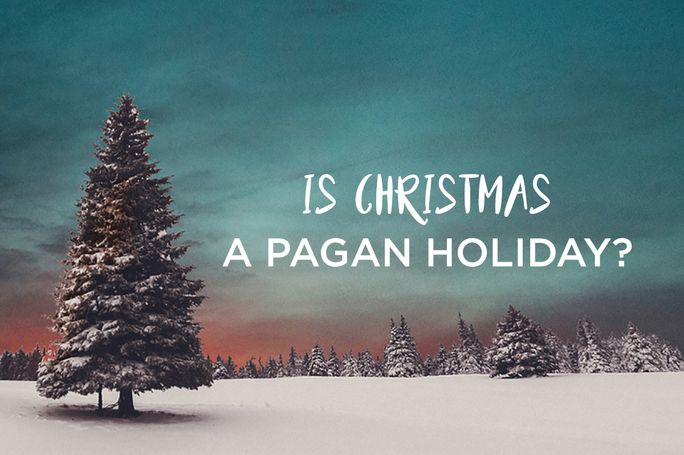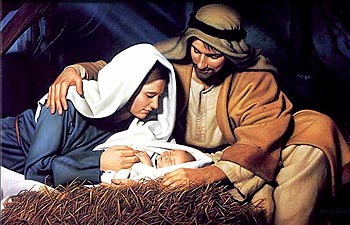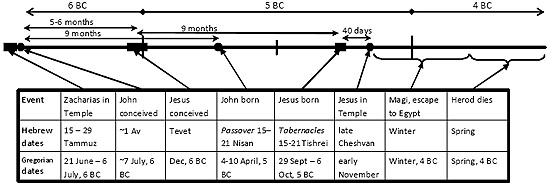For “Scripture Sunday”:
How Can I Create Meaningful Family Experiences?
“One practical, useful tip for bringing those you love closer together.
 Tyler Nix/Unsplash
Tyler Nix/Unsplash
How do we create meaningful experiences for our loved ones? Quite simply, the key to creating meaningful experiences with someone is to spend time with them.
Work, school, soccer practice, appointments, shopping, birthday parties—there always seems to be something out there that can take up your time. And while it can be fun and exciting to stay busy, have you ever wondered, ‘What does it all mean?’
As a parent, a spouse or quite simply as a human being, we must take the time to be intentional with our actions, so we can create meaningful experiences.
Things today are not like they were when you were a kid. Some of that is good. Have family that lives across the country? With the miracle of the Internet, you can stay in touch with them and even speak “face-to-face” any time you like. But of course, there is a downside: With that same technology, many people find themselves isolated from those around them.
Warning: Hard Work Ahead
Perhaps your background is similar to mine. Before cellphones and the Internet, we used to pick up a land line, call a friend and make plans to go spend time together. Or perhaps you didn’t do the planning, but your parents or grandparents did. Every summer, my grandparents took my brother and sister and I to numerous state and county fairs. While that might seem like an outdated way to entertain yourself, the more important thing to consider is this: Each of those trips took time and planning on someone’s part.
Among other things, smartphones have allowed us to be spontaneous. Want to see a movie? Look it up on your phone in 10 seconds or less. Want to go to a store? Speak the name of it to your GPS and you’re on your way! Please understand: smartphones, GPS and technology as a whole are not bad. But the laziness it creates in our lives can be.
When my grandparents took us to the fair, it involved weeks of planning. Reading a paper, looking up what shows might be going on that us kids would like. Coordinating with my parents to make sure we didn’t have plans already. All of this took time. Creating meaningful experiences requires time and intention on our part.
Now What?
So, how do we create meaningful experiences for our loved ones? Quite simply, the key to creating meaningful experiences with someone is to spend time with them.
It won’t happen overnight. It will take some time to understand what kinds of things are meaningful to those you want to create this experience with. That video game your children play that you hate? Watch them play it. Ask questions about what the objective of the game is and why they enjoy it so much. You might discover that what your child really likes is mystery and intrigue. From there, you might plan out how to spend time sharing a similar, non-digital, experience with them, such as a “who done it” dinner theater, or an escape room. Maybe your spouse enjoys a TV show set in a particular time period. Perhaps for your next anniversary, you can plan a nice getaway to a period themed bed and breakfast they would enjoy.
God designed us to have meaningful relationships with one another.Specifically, He wants us to have meaningful relationships with our children. Deuteronomy 6:6-7 states: “And these words which I command you today shall be in your heart. You shall teach them diligently to your children, and shall talk of them when you sit in your house, when you walk by the way, when you lie down, and when you rise up.” God wants us to teach our children about Him and His ways, and He tells us we do it by spending time with them. We can do that when we are on a walk, at the breakfast table, when we go to bed at night—any opportunity we have to spend time with them.
You can have meaningful family experiences. It requires planning, intent and most importantly, time. If we do these things, you can create the life and experience for your family that God intended!” From: https://www.ucg.org/bible-study-tools/bible-questions-and-answers/how-can-i-create-meaningful-family-experiences
________
Don't "Trouble Your House"
Have you thought about how your example effects those around you?
Transcript of YouTube: https://youtu.be/OXXdfyXATuo
[Gary Petty] “When my two daughters were young, every time I would come home, I’d look forward to it, I’d come to the door, start to unlock it, and I can hear, “Daddy, Daddy.” They would be running across the floor. And they would run up and of course, I would be happy to see them. But sometimes it was like, “Oh, I had such a hard day and just give me some time.” And I would sort of put them off. And after a while, my wife said, “You know, I know what kind of evening we’re gonna have as a family based on your mood when you walk through that door.” And I said, “Well, what do you mean?” She said, “Well, if you come through that door happy, those two little girls are happy the whole rest of the evening. If you come through that door grumpy, they’re grumpy the rest of the evening. If you’re moody, they’re moody the rest of the evening. Whatever mood you come into this house with, they absorb and that’s the way our evening’s going to be.” So I started thinking about that, and I started noticing it, and I started trying to make sure that when I walked through that door, I had a positive attitude and played with them and interacted with them. And it made the evening totally different. We don’t realize sometimes the impact we can have on our own family.
You know, in the book of Proverbs, Solomon writes this, “He who troubles his own house, will inherit the wind.” We can trouble our own house, we can hurt the others, other people in our homes, and not even realize it. And of course, what happens when we trouble everybody else, whether it’s our children or our spouse, we end up inheriting nothing. We inherit the wind, as we drive everybody away from us. I want you to think about these questions I’m gonna ask here. Do you do this? Do I trouble my house by taking the frustrations of outside distractions on my spouse or children? How unfair is that? And yet it’s easy to do that. You know, if I came home after a bad day it was easy for me to somehow take that out on my children. And then they suffered because of it. What did I reap? Having a bad evening.
Don’t have unrealistic expectations of my spouse or children and doom the relationship to constant disappointment and resentment. Now sometimes we can have such high expectations of those around us, nobody can meet those expectations. We actually trouble our own house. We inherit the wind because we’re just not helping them to develop, we’re always putting them down. Do I often try to control the other members of my family to meet my expectations, or force my desires upon them, and end up creating anger and drive them away? This is something I’ve dealt with many times as a pastor, counseling, and families where the man or, you know, the dad or the mom are actually driving their children to anger by the way they treat them. Now, I understand as parents sometimes we have to do things that upset our children because we have to do them because they’re right. But the child has to understand our motivation, is because we’re looking to do what is right and because we have their welfare at heart. If they feel like we’re doing it, you know, being mean to them, putting them down just because it’s easier for us or for our own desires, they will become very angry.
And then do I trouble my own house through my selfishness and lack of understanding and caring? We just don’t understand. And we don’t care. Every one of our children especially need understanding that they can go to mom and dad and know that these people, even if they’re upset with them, even if they think they did something wrong, they will try to understand them and try to care for them. You know, it’d be a good thing for husbands and wives to sit down and answer these questions and then discuss it with each other. Each of you answer these questions concerning yourself and then see how your partner would answer those questions. Because we have to be careful we don’t fulfill what Solomon wrote. He who troubles his own house will inherit the wind.” From: https://www.ucg.org/beyond-today/beyond-today-daily/dont-trouble-your-house
_______
Update
Things are just plodding along the same here, except we did have Christmas. As you know I don’t ‘do’ Christmas because the 25th. Dec. isn’t Our Lord’s birthday, it is some pagan gods’ birthdays. But my grandson was going to be off work and at my daughter’s that day, so I drove there. He is all ‘growed’ up and a young man now, and it was so wonderful to see him and also what is left of the older generation, that I hadn’t seen for years. It was a very quiet and lovely family meal and get-together. The pictures of my grandson are still in my phone.
The Bible studies on Sunday afternoon and Friday morning were interesting, as usual.
This Sabbath, my neighbor Cherry and I were welcomed back to the local church, now that all their holiday programs were over. For the potluck I made another of my Impossibly Easy Crustless Bisquick pies, but this time with peeled, cut-up apples. There wasn’t a crumb left. I was given a fruit basket with more apples, so I‘ll make another of those, maybe just for me!
The Sermon as “Shall We Love” based on Matt. 23:36-40. 36 “Teacher, which is the great commandment in the law?” 37 Jesus said to him, “‘You shall love the Lord your God with all your heart, with all your soul, and with all your mind.’ 38 This is the first and great commandment.39 And the second is like it: ‘You shall love your neighbor as yourself.’ 40 On these two commandments hang all the Law and the Prophets.”
Yes, and the pastor said you have to love yourself, too, and then we all sang the hymn “Love Lifted Me”. The potluck and fellowship were great.
There was also a pineapple in the basket, so I will enjoy cutting that into the fancy shapes that I saw on the internet, and eating and sharing that in the next few days.
 The ancient world was full of paganism. Pagan is a term describing belief and worship of multiple gods. Ancient pagans worshipped gods that were associated with nature, typically using statues and images.
The ancient world was full of paganism. Pagan is a term describing belief and worship of multiple gods. Ancient pagans worshipped gods that were associated with nature, typically using statues and images.











 This week on the Daily Bible Verse Blog we have been looking at the importance of thanksgiving. Thankfulness is a hallmark of a true Christian. Almost anyone can be thankful when everything is going well, but Christians are to be growing in an attitude of thanksgiving in every situation.
This week on the Daily Bible Verse Blog we have been looking at the importance of thanksgiving. Thankfulness is a hallmark of a true Christian. Almost anyone can be thankful when everything is going well, but Christians are to be growing in an attitude of thanksgiving in every situation.











